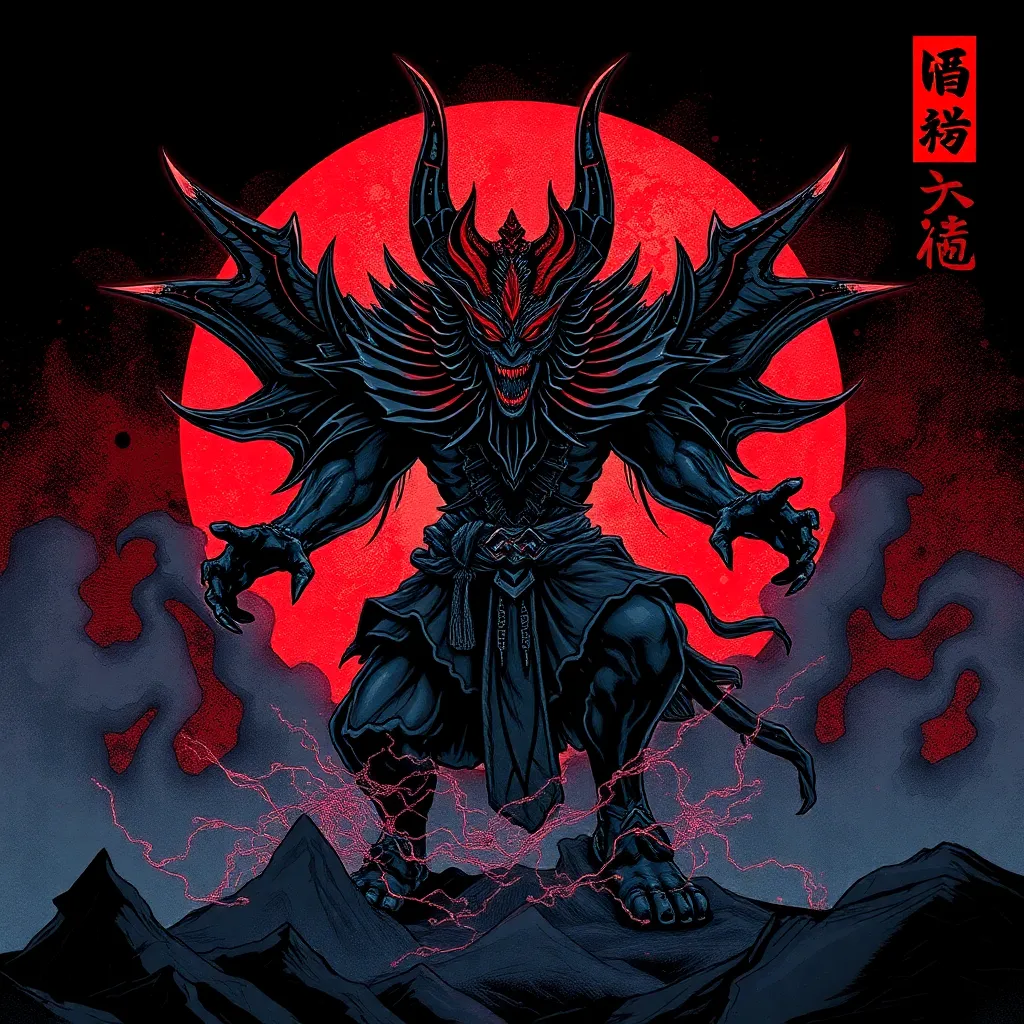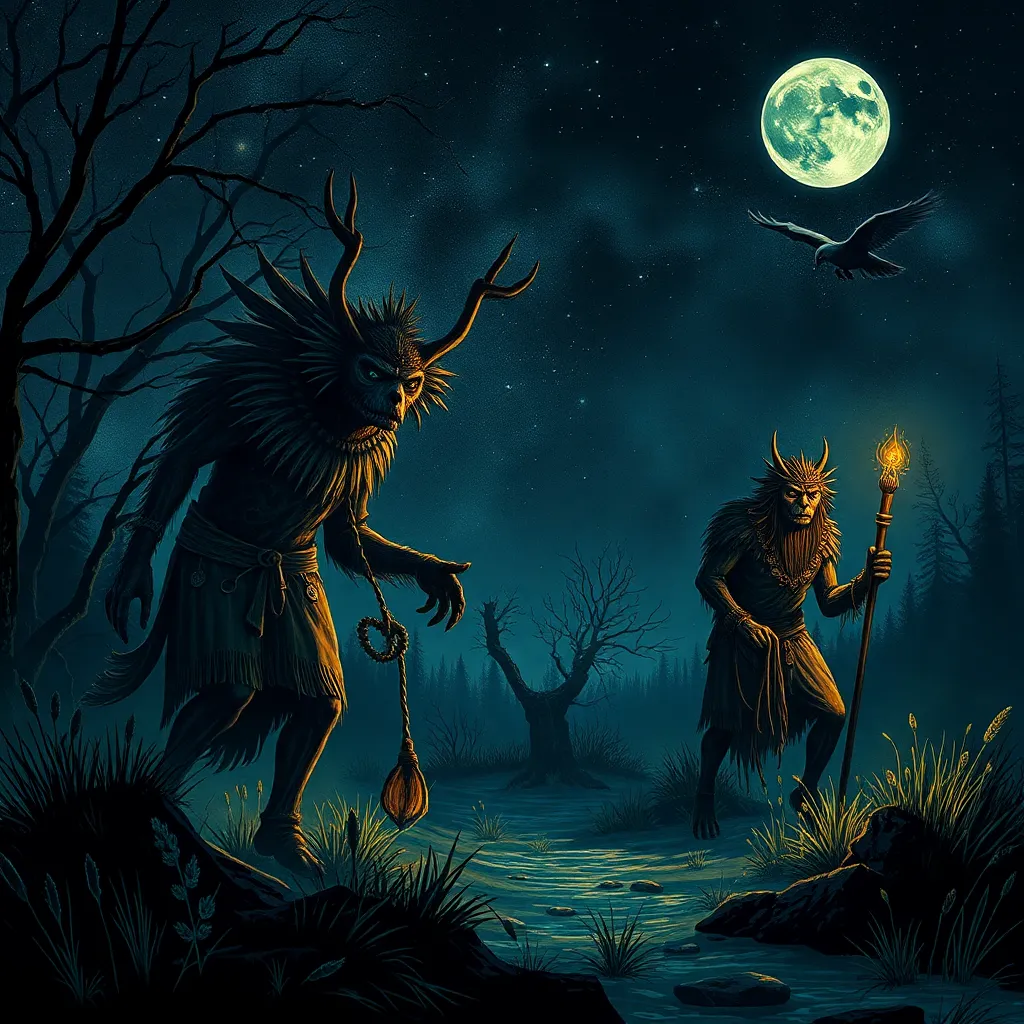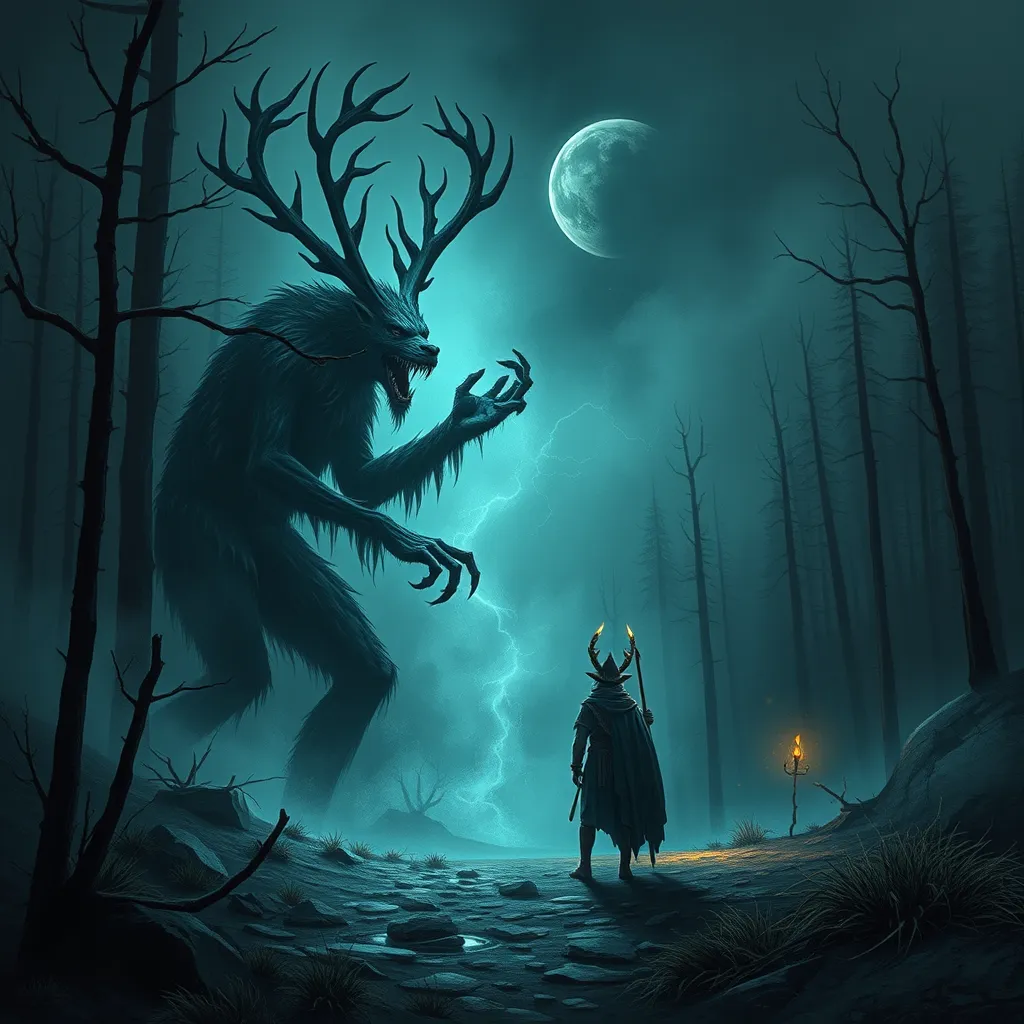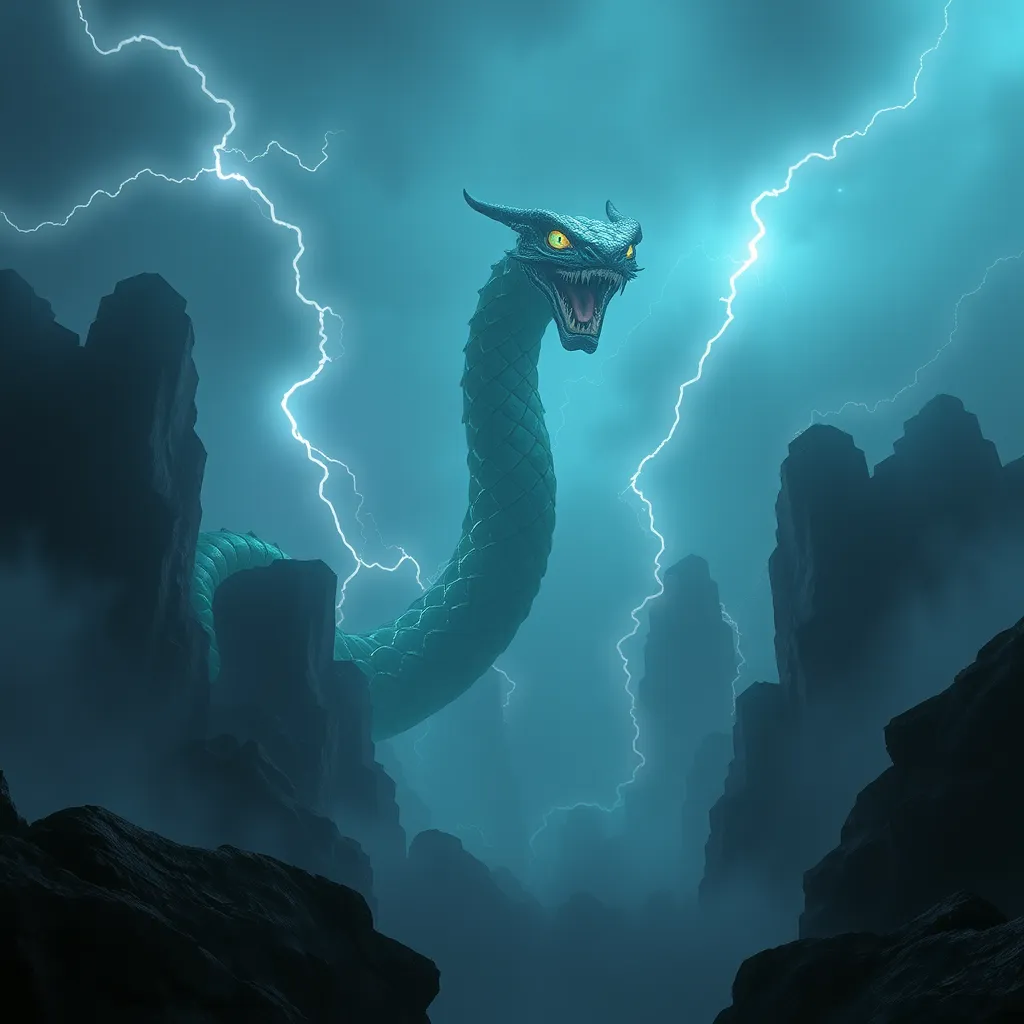The Demon King: The Legend of Oniwaka and the Origins of Evil in Japanese Mythology
I. Introduction
Oniwaka, often referred to as the Demon King, holds a significant place in Japanese mythology. His story embodies the complexities of human nature, the battle between good and evil, and the dualities that exist within ourselves. This article delves into the legend of Oniwaka, exploring its implications on our understanding of evil and how it reflects the broader themes of morality present in Japanese folklore.
In Japanese folklore, the concept of evil is multifaceted and often intertwined with the cultural and spiritual beliefs that have shaped the nation over centuries. The portrayal of demons, particularly the Oni, serves as a lens through which we can examine these ideas. The purpose of this article is to investigate the legend of Oniwaka, its historical context, and its lasting impact on the perception of evil in Japanese culture.
II. The Legend of Oniwaka
The story of Oniwaka has its roots in the Heian period, a time characterized by the flourishing of literature and the arts in Japan. The legend recounts the life of a young hero who, through a series of tragic events, transforms into a demon king.
Key elements of the legend include:
- Oniwaka’s initial role as a protector of the people.
- The betrayal he faces from those he trusted.
- His eventual descent into darkness as he seeks revenge.
Oniwaka’s transformation from hero to demon king serves as a powerful narrative about how circumstances and societal influences can alter a person’s path, turning a once-noble figure into a symbol of fear and malevolence.
III. The Symbolism of Oniwaka
Oniwaka represents the inner conflict and duality that exists within all individuals. His journey illustrates the struggle between maintaining one’s integrity and succumbing to the darker impulses that can arise from pain and betrayal.
In Japanese folklore, demons known as Oni are often seen as embodiments of chaos and malevolence. They serve various roles, from punishing the wicked to acting as cautionary figures. Oniwaka’s connection to these demons deepens our understanding of how fear and morality are interwoven in the human experience.
IV. The Origins of Evil in Japanese Mythology
The exploration of evil in Japanese mythology is grounded in both Shinto and Buddhist beliefs. Shintoism views evil as a disruption of harmony, while Buddhism perceives it as ignorance and attachment leading to suffering. These perspectives provide a rich backdrop for understanding the emergence of demons and malevolent spirits in folklore.
Some key points include:
- Shinto beliefs emphasize purity and the importance of rituals to ward off evil.
- Buddhism introduces concepts of karma and the cycle of rebirth, influencing the understanding of moral consequences.
- The portrayal of demons in folklore often serves to reflect societal fears and moral lessons.
When compared to other cultures, Japanese interpretations of evil present unique insights. For instance, while Western cultures often personify evil as a singular force, Japanese mythology illustrates it as a pervasive element that can manifest within anyone.
V. Cultural Impact of the Oniwaka Legend
The legend of Oniwaka has permeated various forms of literature and art throughout Japanese history. From classical Noh theater to modern manga and anime, his story continues to resonate with audiences today.
Influences include:
- Literature: Oniwaka is referenced in tales that explore themes of heroism and tragedy.
- Art: Traditional and contemporary artists depict Oniwaka in various styles, often emphasizing his duality.
- Media: Modern storytelling frequently draws on the archetype of the fallen hero, reflecting societal struggles with morality.
In contemporary Japanese culture, the figure of Oniwaka serves as a reminder of the complexities of human nature and the ongoing battle between good and evil.
VI. The Evolution of the Demon King Archetype
The archetype of the demon king has evolved over time, with Oniwaka being a pivotal figure in this transformation. Historically, demons in Japanese mythology have shifted from mere representations of evil to complex characters embodying the struggles of humanity.
When compared with demon figures in other mythologies, such as the Christian devil or the trickster figures of Native American lore, the Japanese demon king often reflects a more nuanced understanding of morality. The perception of good and evil has also changed, influenced by modern philosophical and cultural shifts.
VII. Lessons from Oniwaka’s Tale
The tale of Oniwaka offers valuable moral and ethical lessons. Key takeaways include:
- The importance of resilience in the face of betrayal and hardship.
- The possibility of redemption, even for those who have strayed into darkness.
- Understanding the nature of fear and its role in our lives.
Oniwaka’s journey emphasizes that personal and societal struggles with evil are ongoing and that recognizing our inner demons is crucial for growth and transformation.
VIII. Conclusion
Oniwaka’s impact on Japanese mythology is profound, illustrating the complexities of good and evil throughout the ages. His story is a testament to the enduring nature of legends and their ability to convey deep truths about the human condition.
In reflecting on the complexities of morality and the nature of evil, we are reminded that these themes resonate across cultures and time periods. The legend of Oniwaka encourages us to confront our inner conflicts and strive towards understanding the multifaceted nature of good and evil in our own lives.



